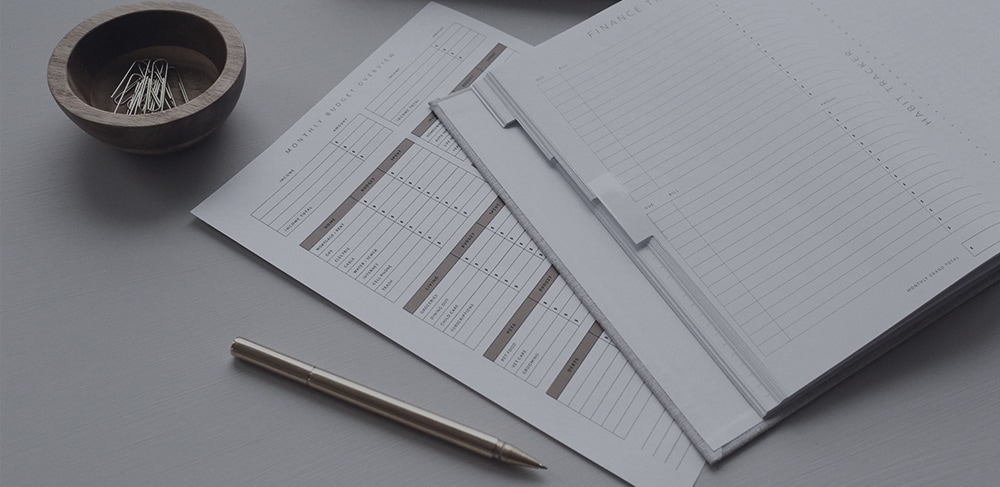Top 9 Mistakes for First-Time Home Buyers
The housing market is showing no signs of slowing down, with prices relatively low and mortgage rates at an all-time high. Experts predict that homebuyers will continue to see raises in the foreseeable future as interest rates remain attractive for buyers looking towards purchasing homes. Once you are ready to buy a new home, there are many mistakes you can make! Here are seven top mistakes that first-time buyers often commit. These errors can have serious financial consequences down the road and should be avoided at all costs! The hot housing market means heavy competition for homes – especially for those in demand. If buying a property is not on your radar yet because it seems too complicated or overwhelming, then here is an overview of the top seven things that could go wrong.

1. Go over the budget
If you know that you are likely to move again within the next years, buying a home may not make sense. If renting is what works best financially and emotionally then by all means continue with this approach until it becomes inconvenient or impossible to do so any longer! This may be the case due to financial constraints such as rent high prices. Likewise, if purchasing can provide you with more stability while maintaining affordability then go ahead with the purchase even though the initial price may seem higher at first glance.

2. Moving in too quickly without checking the conditions
When you think about buying a new house, there are many details that can be overlooked. But what if the only house you liked was second hand and had already been used by previous owners? Chances are high it would have some issues! Guess who would end up having to live with these problems for months or even years until they get repaired? …You!
Buying can only be considered a reasonable option if it is within your financial limits and suits your living situation. It may put your finances at risk and thus, make other things like paying bills harder. You will have a less flexible budget to spend for fun activities or even just for saving money!
3. Not having emergency funds
Homeowners spend a lot of time and money on their houses, which is why it is important to consider all possible expenditures before buying. For instance, your financial security might be at risk if you don’t have enough emergency funds. Things can go wrong with the down payment or closing process because there are other expenses that can eat away your savings such as homeowners’ insurance maintenance or Homeowners Association (HOA) fees.
4. Leaving out the home inspection
Furthermore, it can happen that house buyers don’t ask for a home inspection before moving into their new home. A major downfall when buying a house in today’s market are all the hidden fees and costs. Mold spores on the ceiling from water damage (which could become a serious health hazard) or termites eating through floorboards beneath (which would require investing huge amounts of money into the repair/renovating process).
All these unpleasant surprises can be avoided by arranging an inspection before even looking at possible new homes!
5. Miscalculating the costs of owning a home
Buying a home is often seen as an investment, but it’s not the most profitable form of investment. A more lucrative option would be buying shares in real estate or stocks with high dividend yields – these are two assets that can provide quick cash when you really need it!
6. Being careless with your financial profile
Some first-time home buyers don’t consider debt-to income ratios before looking for a lender. If monthly payment rates on credit cards or other lines of borrowing are high in comparison to your monthly income after taxes and retirement savings, then this might not be an option. But there is still hope! Showing the history of all your funds will increase your chances of getting an appropriate loan by 10%. Also, lenders look at more than just how much money you have coming in each month; they also consider whether you can cover unpaid debts should something happen suddenly, such as an injury preventing you from earning money through work.

7. Choosing the house over the neighborhood
Out of all the aspects to consider when buying a new home, choosing a neighborhood is by far one of the most important! It should have amenities that suit your needs and interests! Look into what entertainment options are available near you, like pools or restaurants. It’s always a good idea to research the closest access to public transportation to avoid expensive gas bills from driving around town every day.
Buying a home is one of the most difficult decisions you will ever make. The wrong agent can make you waste time and money, so it is crucial when interviewing potential realtors to look for an expert with knowledge about current market values.
A realtor can help you identify the house’s true value by looking at comparable sales in the surrounding area. Online real estate websites might give buyers a false sense about what their house is worth. For this reason, it makes sense to have an expert on hand who understands local prices and dynamics of housing markets more than anyone else does!
8. Keep an eye on credit score changes
Be careful before applying for a lender! If your credit score changes, you may find out just as the application process is about to close that it’s not worth taking on loans for these reasons:
- A pre-approval letter from the lender can often mean nothing in terms of getting approved.
- Banks and other financial institutions check an applicant’s FICO rating before deciding whether they will offer financing at all – even if you have an excellent payment history or low monthly expenses!
9. Avoid getting into debt
Don’t get into any new debts when you are still trying to get your life together – it will only make the situation worse. Make sure that before changing jobs everything is in order, that your payments are on time and of course that you can pay off all debt as soon as possible!
Conclusion: Don’t decide based on emotions
Buying a house is not just an ordinary decision, it is a big one and it should be difficult! Sometimes this means that emotions can get in the way and make rational choices more difficult. But don’t worry, there are some things you can do! Here is a summary of the points listed above:
When looking for your dream home, take your time with the selection process; don’t act on impulse! So, please think long term before making any final decisions. When investing money into purchasing property, it’s always best to ensure it suits your financial and living situation, rather than getting swept away by your wishes and fantasies.




